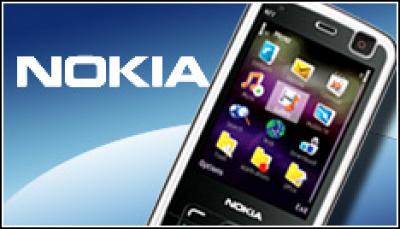Nokia And Yahoo Partner On Mobile Services

Yahoo and Nokia announce a partnership that will see Yahoo become the global provider for Nokia’s Ovi e-mail and messenger services
Yahoo and Nokia announced a partnership on 24 May in which Nokia will become the global provider of Yahoo’s map and navigation services, while Yahoo becomes the global provider of Nokia’s Ovi e-mail and messenger services.
The deal is designed to play to the strengths of both companies, with Yahoo compensating for a weakness in maps with Nokia’s technology, while Nokia’s Ovi brand benefits from Yahoo’s advances in mobile communication.
The co-branded offerings are expected to be available starting in the second half of 2010, with global availability planned for the following year. Yahoo properties’ maps will be labeled “powered by Ovi,” while Ovi Mail and Ovi Chat will be “powered by Yahoo.” In addition, the two companies are apparently working on a way to allow streamlined access for Ovi user IDs to certain Yahoo online services and content.
“It’s increasing a part of Yahoo’s DNA to partner,” Yahoo CEO Carol Bartz said during a 24 May press conference. “We’ll partner with others when we need to add strength to our services.”
Focused On Map Platform
Bartz described the deal as ultimately giving Yahoo users a “richer experience” incorporating Nokia’s maps and navigation technology. “We haven’t been focused a lot on our maps platform,” she said. “This alliance changes that. It’s a great example of an approach to partnership.”
Nokia executives expressed hope that the Yahoo alliance would help the company establish more of a beachhead in the U.S. mobile market, where it lags behind other competitors with regard to both market and mind share.
Another major Yahoo partnership is its 10-year search and advertising deal with Microsoft that will see Bing power Yahoo’s back-end search processes in exchange for Yahoo managing the two companies’ worldwide search-advertising sales force. According to corporate blog posts, the two companies aim to have major aspects of the deal in place by the end-of-year holidays, including moving Yahoo’s U.S. advertisers and publishers to Microsoft’s AdCenter platform.
For the first five years of that agreement, Microsoft will pay Yahoo traffic acquisition costs at an initial rate of 88 percent of search revenue generated on Yahoo’s sites. “The Yahoo and Microsoft team have been working hard to design a high-quality transition rate for customers,” Carolyn Miller, a member of Microsoft’s AdCenter Community Team, wrote in a 6 May post on the AdCenter blog. “We’re working toward completing this transition in the U.S. and Canada before the start of the 2010 holiday season, with additional countries following on a staggered schedule beginning in 2011.”
In the aftermath of that agreement, Yahoo seemed more determined than ever to insist on its autonomy and viability as an independent entity. During an August 2009 press conference, Yahoo executives rolled out several new features designed to augment the company’s core properties, such as Yahoo Mail and Yahoo Messenger.
“Background search is much like an Intel chip,” Bartz told an audience of assembled media during a September event at NASDAQ MarketSite in Times Square. “Thank God they’ve done their R&D and gotten it out into the world; but the experience that Dell wraps around their chips and HP wraps around their chips is different.”
Deal With Samsung
Yahoo also announced an agreement on 26 April that will see services such as Yahoo Mail, Contacts and Calendar preloaded on Samsung smartphones. Other mobile deals include one with AT&T that will make Yahoo the default search provider for the Android-running Motorola Backflip smartphone.
Yahoo continues to occupy a middle position in the U.S. search market, consistently placing ahead of Bing but lagging far behind Google. Nonetheless, Yahoo’s executives have publicly expressed optimism about the company’s prospects—and used the opportunity to inevitably try and seed doubts about their competitors. In a 29 April interview with BBC News, Bartz suggested that Google would face serious issues in the future: “Google is going to have a problem because Google is only known for search … Google has to grow a company the size of Yahoo every year to be interesting.”